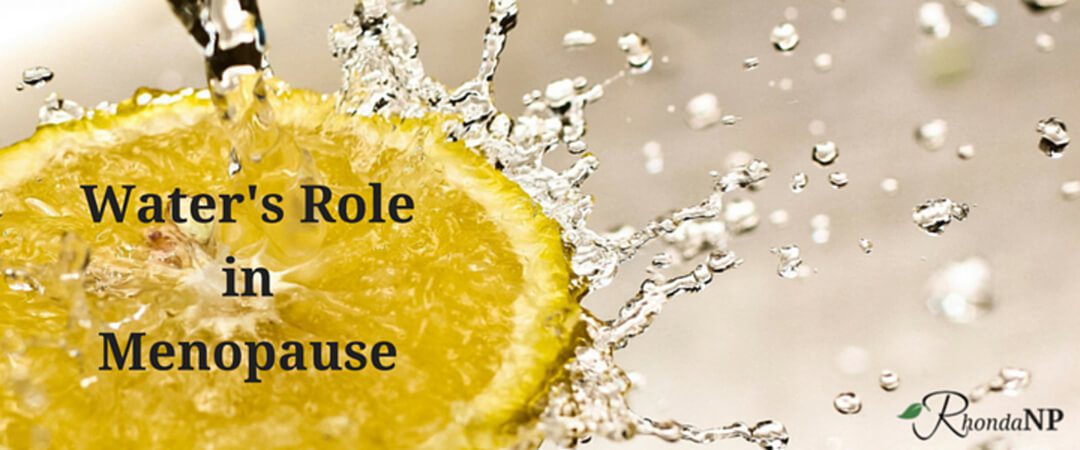Let’s talk water and menopause!
Let me set the stage for you. It is commonly recommended that you need 8-10 glasses of water a day. A tip I give my patients is “think to drink” ½ your body weight in ounces daily.
During menopause, water intake supports your overall health.Our body is 75% Water!
Our brain is 85% Water!
Fascinating, right?!
Common sense is the name of the game here. Since everyone is different, water consumption will vary as well. Here are some things to consider:
- Consistent water intake is important. If you wait to drink until you are at the point of thirst you may have waited too long and may be dehydrated.
- Your urine indicates your water needs: clear is good, cloudy means you need more water.
- Soda, water, tea, kombucha, etc. contain water but shouldn’t count in your daily intake. Additives steal from the hydrating quality of the water.
Water is the magic tonic in menopause
Two important things to consider:
- Dehydration can raise the stress hormone cortisol. Too much cortisol supports fat storage around your midsection.
- Dehydration can create fatigue. Lack of water crashes your metabolism, lowers blood volume, and disturbs fluid balance. All these factors cause your heart to struggle to deliver oxygen and nutrients. The results are mental fog, headaches, and sluggishness. Don’t reach for coffee in this case – it further dehydrates your body!
Water is water, right?
Well, of course, it isn’t that straight forward! Check these out.
Tap water
Comes out of the faucets and is treated, processed and disinfected. It is purified with chlorine and has added fluoride.
Distilled water
Vaporized and collected, all the minerals are taken out of distilled water. (Better to use in your steam mop and iron to avoid clogging it up!)
Bottled water
Not as clean as advertised. Plastic bottles are poison, especially when hot. Most lack minerals. Here is a research study to check out.
Reverse osmosis
Forced through filters that remove larger particles, pollutants, and minerals. Most water is alkaline, reverse osmosis is not.
De-ionized water
Ionized impurities and minerals removed, bacteria or pathogens remain.
Spring water
Clean, natural and pure, it has minerals, magnesium, potassium, and sodium.
It would be difficult to get all our minerals from water. We just can’t drink that much in a day. We should rely primarily on foods for these nutrients.
Almost all municipal water in is of high quality and drinkable. The best source of specific information about the water quality in your area is your local water supplier. Water suppliers are required to send their customers an annual water quality report. Contact your water supplier to get a copy, or see if your report is posted online
Water Intake Tip
I recommend beginning your day with 8-10 ounces of warm water with a few drops of lemon essential oil.
At the time, I wrote this article, 639 studies refer to the health benefits of lemon oil. It appears d-limonene, a powerful cancer-fighting antioxidant is a key.
Isn’t it cool when science validates thousands of years of therapeutic use and Ayurvedic medical applications?!
Action Steps
- Be mindful of your water intake – make it a habit.
- Start your morning with 8-10 ounces of warm water and lemon essential oil.
Cheers to you – drink up!


